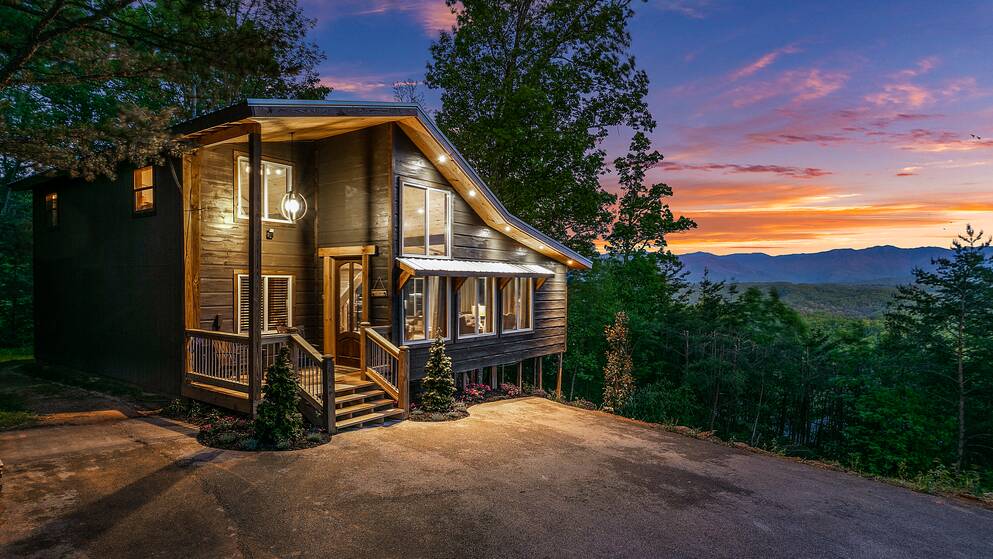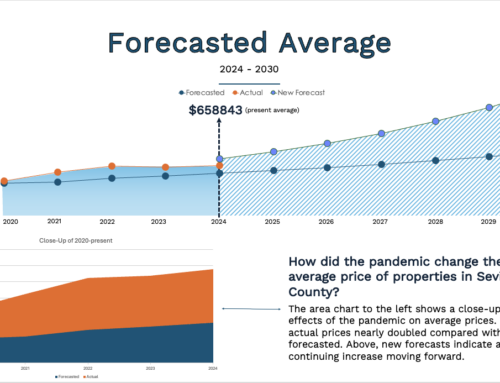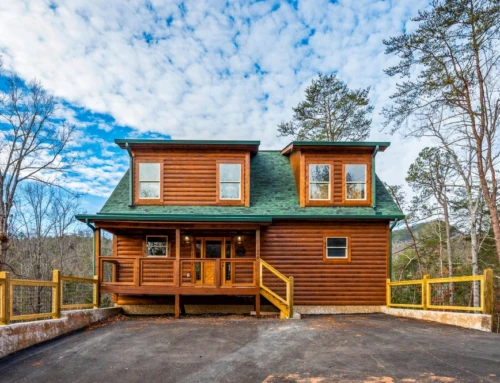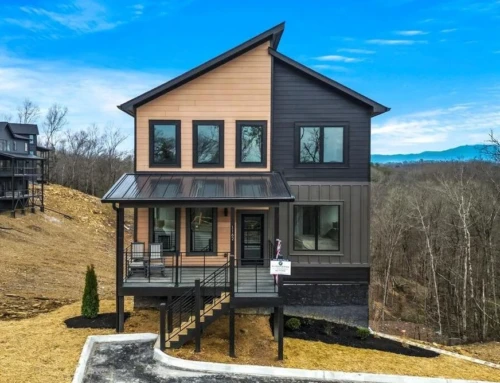What’s New in Investment Loans?
A Chat with Mortgage Pro Debbie Hill
I recently had the opportunity to meet with Debbie Hill, a local lender at Mortgage Investors Group. Our discussion revolved around the current lending market and the options available for investment and primary home buyers. Originally from Georgia, she made the move to Atlanta in January 1987 where she began her career in the mortgage industry. It was there she met and married her husband, Geoff, and in 1992 they tied the knot and in 1993 made the decision to move to Sevierville. Debbie’s deep-rooted connection to the area makes her as close to a “local” as one can be without being born and raised in the Smoky Mountains. Since 2009, she has been a valuable part of the MIG team after running her own brokerage firm.

Her Why
The American Dream

After 37 years in the mortgage business, Debbie still loves it. Her love for lending stems from the profound satisfaction of helping her clients achieve the American Dream. She relishes the opportunity to assist first-time home buyers and help people add to their wealth and work towards retirement. Nothing about lending is black and white and her ability to be creative and think outside the box is what keeps her job interesting. In her own words, she describes it as akin to assembling a complex puzzle, where each piece is distinct and requires a unique perspective to complete.
Benefits of a Local Lender
Definitely Go Local
Debbie (and I!) could talk for hours about the importance of using a lender who is local and familiar with the area and short-term rental market. The Smokies is a resort area with log homes and presents a market that can confound lenders unfamiliar with either. Such unfamiliarity can lead to unnecessary complications and challenges. One of the advantages of choosing a local lender is their roster of approved, locally-based appraisers who possess familiarity with the market and with the area itself. In my experience, I have had appraisers ruin deals due to their lack of understanding of the market. Debbie even goes as far to say, “A local lender is going to be your best bet. Whether it’s me or somebody else, you definitely want to go local.”
Loan Types for Investors
What Types of Loans Are There?
Debbie’s first suggestion for investors is to secure a Conventional loan product which typically offers the most favorable interest rates, especially with a 20%-25% down payment. For buyers that find themselves unable to qualify for those loans due to specific debt-to-income ratios or because they possess more than 10 financed properties, Debbie recommends the Debt Service Coverage Ratio (DSCR) program. DSCR programs focus primarily on the buyer’s credit history, available down payment and financial reserves, and determining whether the anticipated rental income from the property will sufficiently cover the mortgage payments. Her DSCR loan product does not come with a prepayment penalty, although their interest rates tend to be roughly one point higher compared to Conventional loans. For individuals who have owned a rental property for at least 12 months, the mandatory downpayment is 20%, while first-time investors are required to put down 25%. This is an excellent product for some Investors.
Those 10% down second home loans that have been so popular over the past couple of years are still out there, but they have incurred price adjustments. This was due to an announcement from the Finance Authority labeling second home and investments as higher risked loans. At this 10% down payment level, borrowers may need 3-4 discount points which is considered a high-cost loan which is outside of secondary regulations. However, options are available with seller paid discount on behalf of the buyer. Similarly, 15% down loans remain an option for investment property, but it is hard to make the numbers work without assistance from the seller. In other words, lower down payment on second and investment is still an option, but requires some negotiating.
Reducing Interest Rates and Monthly Payments
Maintain Your Credit Score to Secure Access to the Best Interest Rates
Undeniably, the current market presents some challenges when it comes to interest rates. However, Debbie has outlined several strategies to mitigate the impact and potentially reduce both rates and monthly payments.
The first option involves higher down payment, to help reduce the interest rate. The second option is to buy down points, which effectively decreases the overall interest rate. Additionally, there’s the option of a temporary buydown, where the seller is able to help contribute. Ultimately, maintaining a strong credit score is crucial to securing access to the most advantageous interest rates.
Debbie provides an example of the temporary buydown option: if the fixed interest rate is 8%, a 2-1 buy down would result in a first year payment based on a 6% interest rate, 7% payment for the second year, and then 8% for the remaining life of the loan. The difference in payments during those first years with the reduced interest rate is covered by the seller at closing. This approach, popularized by builders in the 1980’s, allows the buyers to make reduced monthly payments for a year or more and the ability to refinance when the interest rates become more favorable. Most importantly, it provides the security of a rate that will not exceed, in this example, 8% for the duration of the loan. This temporary buy down option is available for primary and second home loans, not investment loans.
Repeat 2006?
How Does the Lending Landscape Compare Today?

When I inquired about the differences between the lending landscape today and that of 2006, Debbie’s response was clear, “We’re not in 2006, 2007, 2008. We’re not seeing the houses not appraise or people dumping them. Now, all of our loans are qualified mortgages. People are qualifying for them.” In 2006, “anyone with a credit score and a pulse could get a loan” as Debbie aptly puts it. However, she underscores that our current market differs significantly from the crash era. The notable absence of foreclosures and sellers drastically slashing prices to offload properties sets it apart.
What Has Changed?
You’ve Got Choices
In the world of investment loans, notable changes have surfaced, particularly in regards to DSCR loans. With an investment home loan using DSCR, a significant change allows individuals to receive a gift from a family member to cover the remaining down payment after the buyer has initially put down the first 10%.
For primary residence loans, there are now multiple downpayment assistance programs designed to facilitate access to primary homes for potential buyers.
Bottom Line:
Personal Concerns
Debbie pinpoints two primary concerns she has with the present market: elevated interest rates and a noticeable scarcity of available properties with the price points of buyers’ qualifications. Despite these high interest rates, Debbie would still encourage buyers if they can qualify to purchase now. As history has shown us, interest rates will rise and fall and her strategic approach is to acquire property now since home prices are continuing to rise and refinance at a later point when rates dip.
Despite uncertainties about the market’s future direction, Debbie consistently underscores her unwavering confidence, explicitly expressing her lack of apprehension about a potential market crash throughout our conversation.















